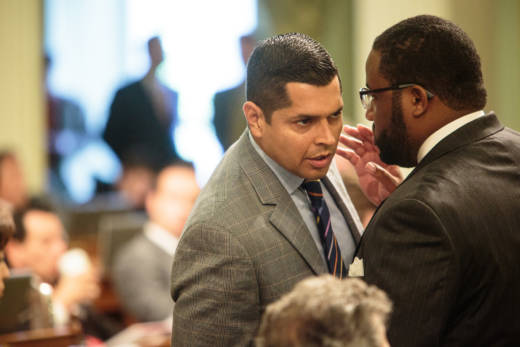In Tuesday's Board of Supervisors meeting, Peskin called the bill a "harmful, wholesale gutting of voters' rights."
AB 943 was introduced in response to Measure S, a failed local initiative in Los Angeles earlier this year that would have put a two-year moratorium on certain construction. Supporters of the measure argue that NIMBY-backed ballot measures can be a significant obstacle in helping the state build more housing.
“When we took a look at what happened in Los Angeles, we started to realize that this is a larger state problem," Santiago said. "If we’re going to vote for an area not to have housing, it ought to have a higher level of scrutiny by the voters."
The bill sailed through the Assembly in May, picking up the votes of San Francisco Assemblymen Phil Ting and David Chiu.
San Francisco Sen. Scott Wiener hasn't taken a position on AB 943, but a spokesman said he is "inclined to support" the bill.
Amendments made throughout the legislative process have already significantly watered down the legislation. The voter threshold was reduced from two-thirds to 55 percent, and counties with fewer than 750,000 people were excluded. In the Bay Area that means the bill only applies to the counties of Santa Clara, Alameda, Contra Costa, San Francisco, San Mateo and the cities within those counties.
The bill also wouldn't apply to ballot measures brought by elected officials, or those affecting developments further than a mile from a major transit stop.
Still, opponents of AB 943 question whether the Legislature can legally raise the threshold for housing measures.
"The voters can clearly impose restrictions on themselves" said Dan Carrigg, legislative director at the League of California Cities, referring to past supermajority thresholds enacted in statewide measures like Proposition 13. "But it's inappropriate and there's a legal problem with the Legislature stepping in."
They also worry that a phrase in the bill calling out any measure that would "reduce density" could be applied loosely and end up imposing a 55 percent vote threshold on a host of voter initiatives, including rent control efforts.
"What it will do is open up litigation every single time,” said Jon Golinger, a community activist in San Francisco whose group, No Wall on the Waterfront, has opposed development proposals in San Francisco and is fighting the state bill.
A spokeswoman for Santiago said the intent is that the threshold apply only in cases where citizens bring a ballot measure that would block development or construction with a "yes" vote.
A review of the 147 ballot measures put before San Francisco voters in the last decade finds that only two directly met that definition, and neither was decided by a thin margin.
In June 2014, Proposition B was passed to limit construction on the city's waterfront, with 58 percent of the vote.
In November 2015, Proposition I, referred to as the "Mission Moratorium," would have blocked new market rate housing in the Mission District. Fifty-seven percent of voters rejected that initiative.
But a supermajority threshold would have proved important in the approval of Proposition M in 1986, a controversial plan to limit office development that was passed with just over 51 percent of the vote.
